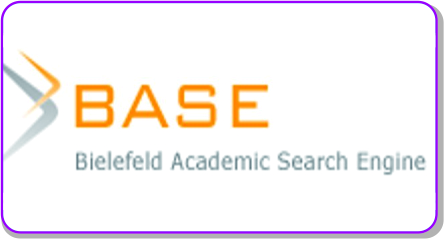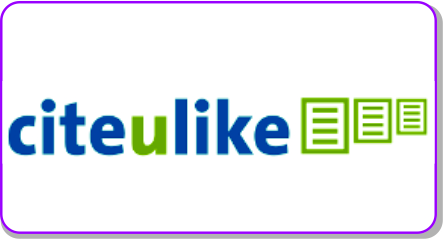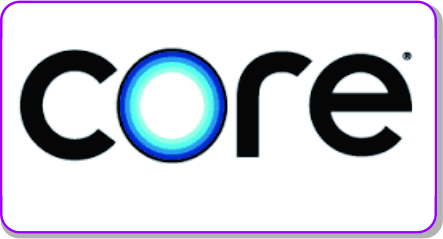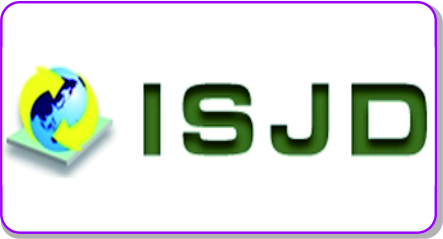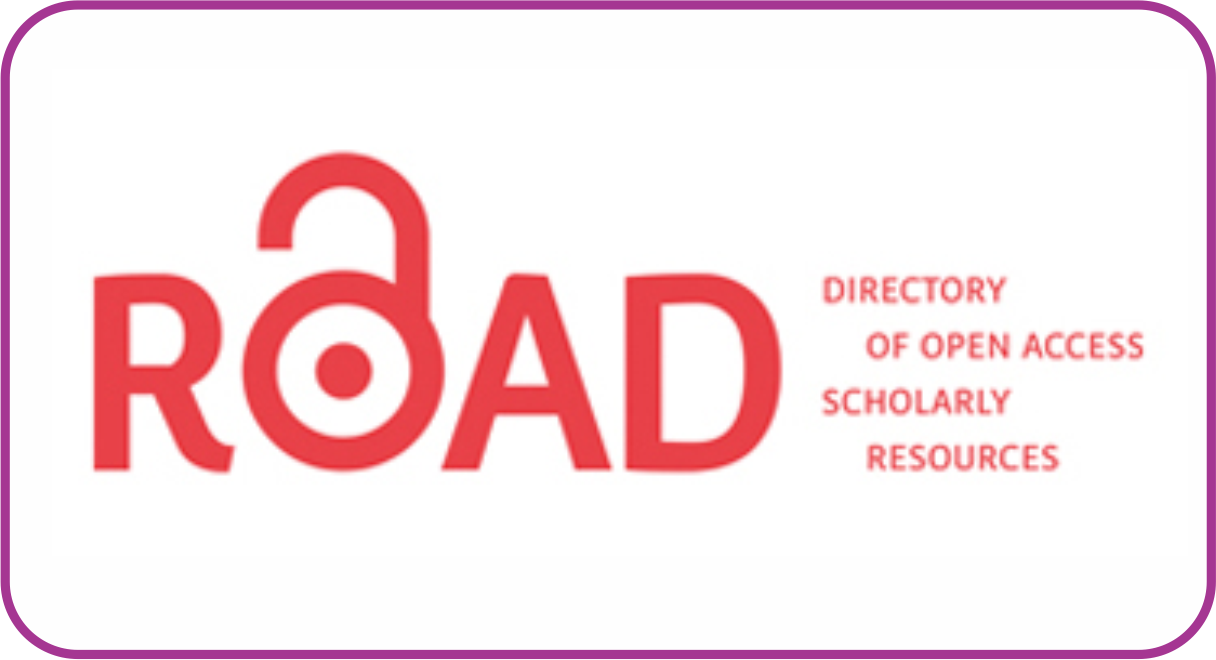ChatGPT and Personalised Learning: Reshaping Pedagogical Approaches in the VUCA Age
DOI:
https://doi.org/10.30983/educative.v8i2.7620Keywords:
Artificial Intelligence, ChatGPT, Higher Education, Personalised Learning, VUCAAbstract
This paper explores the impact of OpenAI's ChatGPT on personalized learning in higher education during the VUCA (Volatility, Uncertainty, Complexity, Ambiguity) era. It investigates how ChatGPT can improve individualized learning to tackle VUCA challenges in higher education. Although previous studies have noted AI's potential in education, there's limited in-depth research on ChatGPT's role in personalized learning. This study stands out by providing new insights into the intersection of AI and higher education pedagogy through a theoretical analysis based on primary and secondary data sources, including academic literature and case studies. Key findings show that ChatGPT's advanced language capabilities can create personalized learning environments, addressing VUCA challenges. It suggests that AI tools like ChatGPT are crucial for pedagogical innovation and student engagement, marking a significant shift in education where traditional methods meet technological advancements. These findings have important implications for educators, policymakers, and AI developers, highlighting the need to integrate AI tools like ChatGPT in higher education curricula to improve teaching and learning experiences, and prepare students for a dynamic world. The paper concludes by urging further academic research to explore the broader implications of AI in education and address the challenges of this transformative process.
Makalah ini mengeksplorasi dampak ChatGPT dari OpenAI terhadap pembelajaran personalisasi dalam pendidikan tinggi di era VUCA (Volatility, Uncertainty, Complexity, Ambiguity). Makalah ini menyelidiki bagaimana ChatGPT dapat meningkatkan pembelajaran individual untuk mengatasi tantangan VUCA dalam pendidikan tinggi. Meskipun studi sebelumnya telah mencatat potensi AI dalam pendidikan, penelitian mendalam mengenai peran ChatGPT dalam pembelajaran personalisasi masih terbatas. Studi ini menonjol dengan memberikan wawasan baru tentang persinggungan AI dan pedagogi pendidikan tinggi melalui analisis teoritis berdasarkan sumber data primer dan sekunder, termasuk literatur akademik dan studi kasus. Temuan utama menunjukkan bahwa kemampuan bahasa canggih ChatGPT dapat menciptakan lingkungan pembelajaran yang personalisasi, menangani tantangan VUCA. Makalah ini menyarankan bahwa alat AI seperti ChatGPT sangat penting untuk inovasi pedagogi dan keterlibatan siswa, menandai pergeseran penting dalam pendidikan di mana metode tradisional bertemu dengan kemajuan teknologi. Temuan ini memiliki implikasi penting bagi pendidik, pembuat kebijakan, dan pengembang AI, menyoroti perlunya mengintegrasikan alat AI seperti ChatGPT dalam kurikulum pendidikan tinggi untuk meningkatkan pengalaman mengajar dan belajar, serta mempersiapkan siswa untuk dunia yang dinamis. Makalah ini menyimpulkan dengan mendesak penelitian akademik lebih lanjut untuk mengeksplorasi implikasi yang lebih luas dari integrasi AI dalam pendidikan dan mengatasi tantangan proses transformasi ini.
References
Books
Argüelles Ãlvarez, Irina, ‘A Holistic Experience in the Integrated Learning of Specialized English and Content in Engineering Degrees’, 2013
Bates, Anthony W., Teaching in a Digital Age: Guidelines for Designing Teaching and Learning (BCcampus, 2015)
Bennett, Nathan, and James Lemoine, ‘What VUCA Really Means for You’, Harvard Business Review, 92.1/2 (2014)
Biswas, Som, ‘Role of Chat GPT in Education’, Available at SSRN 4369981, 2023
Yin, Robert K., Case Study Research: Design and Methods (Applied Social Research Methods) (Sage publications Thousand Oaks, CA, 2014)
Zhai, Xiaoming, ‘ChatGPT User Experience: Implications for Education’, Available at SSRN 4312418, 2022
Willems, Julie, Flexible Learning: Implications of “Whenâ€everâ€,“Whereâ€ever†and “Whatâ€ever†(Taylor & Francis, 2005)
Krügel, Sebastian, Andreas Ostermaier, and Matthias Uhl, ‘The Moral Authority of ChatGPT’, arXiv Preprint arXiv:2301.07098, 2023
Journals
Adiguzel, Tufan, Mehmet Haldun Kaya, and Fatih Kürşat Cansu, ‘Revolutionizing Education with AI: Exploring the Transformative Potential of ChatGPT’, Contemporary Educational Technology, 15.3 (2023), ep429 <https://doi.org/10.30935/cedtech/13152>
AlAfnan, Mohammad Awad, Samira Dishari, Marina Jovic, and Koba Lomidze, ‘Chatgpt as an Educational Tool: Opportunities, Challenges, and Recommendations for Communication, Business Writing, and Composition Courses’, Journal of Artificial Intelligence and Technology, 3.2 (2023), 60–68
Ali, Jamal Kaid Mohammed, Muayad Abdulhalim Ahmad Shamsan, Taha Ahmed Hezam, and Ahmed AQ Mohammed, ‘Impact of ChatGPT on Learning Motivation: Teachers and Students’ Voices’, Journal of English Studies in Arabia Felix, 2.1 (2023), 41–49 <https://doi.org/10.56540/jesaf.v2i1.51>
Aljanabi, Mohammad, ‘ChatGPT: Future Directions and Open Possibilities’, Mesopotamian Journal of Cybersecurity, 2023 (2023), 16–17 <https://doi.org/10.58496/MJCS/2023/003>
Anderson, Nash, Daniel L. Belavy, Stephen M. Perle, Sharief Hendricks, Luiz Hespanhol, Evert Verhagen, and others, AI Did Not Write This Manuscript, or Did It? Can We Trick the AI Text Detector into Generated Texts? The Potential Future of ChatGPT and AI in Sports & Exercise Medicine Manuscript Generation, BMJ Open Sport & Exercise Medicine (BMJ Specialist Journals, 2023), IX, e001568
Bahrini, Aram, Mohammadsadra Khamoshifar, Hossein Abbasimehr, Robert J. Riggs, Maryam Esmaeili, Rastin Mastali Majdabadkohne, and others, ‘ChatGPT: Applications, Opportunities, and Threats’, in 2023 Systems and Information Engineering Design Symposium (SIEDS) (IEEE, 2023), pp. 274–79
Barak, Miri, ‘Are Digital Natives Open to Change? Examining Flexible Thinking and Resistance to Change’, Computers & Education, 121 (2018), 115–23 <https://doi.org/10.1016/j.compedu.2018.01.016>
Baskara, FR, and FX %J IJELTAL Mukarto, ‘Exploring the Implications of ChatGPT for Language Learning in Higher Education’, 7.2 (2023), 343–58
Baskara, FX Risang %J International Journal of Education and Learning, ‘Integrating ChatGPT into EFL Writing Instruction: Benefits and Challenges’, 5.1 (2023), 44–55
Baskara, FX Risang, Anindita Dewangga Puri, and Annisa Radista Wardhani, ‘ChatGPT and the Pedagogical Challenge: Unveiling the Impact on Early-Career Academics in Higher Education’, Indonesian Journal on Learning and Advanced Education (IJOLAE), 5.3 (2023), 311–22
Bates, Tony, Cristóbal Cobo, Olga Mariño, and Steve Wheeler, Can Artificial Intelligence Transform Higher Education?, International Journal of Educational Technology in Higher Education (SpringerOpen, 2020), XVII, 1–12
Bisen, Ibrahim Eren, Emin Alp Arslan, Kamil Yildirim, and Yetkin Yildirim, ‘Artificial Intelligence and Machine Learning in Higher Education’, in Machine Learning Approaches for Improvising Modern Learning Systems (IGI Global, 2021), pp. 1–17
Bommineni, Vikas L., Sanaea Bhagwagar, Daniel Balcarcel, Christos Davatzikos, and Donald Boyer, ‘Performance of ChatGPT on the MCAT: The Road to Personalized and Equitable Premedical Learning’, MedRxiv, 2023, 2023.03. 05.23286533
Borrego, Maura, Margaret J. Foster, and Jeffrey E. Froyd, ‘What Is the State of theArt of Systematic Reviewin Engineering Education?’, Journal of Engineering Education, 104.2 (2015), 212–42 <https://doi.org/10.1002/jee.20069>
Bozkurt, Aras, Abdulkadir Karadeniz, David Baneres, Ana Elena Guerrero-Roldán, and M. Elena RodrÃguez, ‘Artificial Intelligence and Reflections from Educational Landscape: A Review of AI Studies in Half a Century’, Sustainability, 13.2 (2021), 800 <https://doi.org/10.3390/su13020800>
Bozkurt, Aras, Junhong Xiao, Sarah Lambert, Angelica Pazurek, Helen Crompton, Suzan Koseoglu, and others, ‘Speculative Futures on ChatGPT and Generative Artificial Intelligence (AI): A Collective Reflection from the Educational Landscape’, Asian Journal of Distance Education, 18.1 (2023)
Carter, P., and Linda Darling-Hammond, ‘Teaching Diverse Learners’, Handbook of Research on Teaching, 2016, 593–638 <https://doi.org/10.3102/978-0-935302-48-6_9>
Chan, Cecilia Ka Yuk, and Katherine KW Lee, ‘The AI Generation Gap: Are Gen Z Students More Interested in Adopting Generative AI Such as ChatGPT in Teaching and Learning than Their Gen X and Millennial Generation Teachers?’, arXiv Preprint arXiv:2305.02878, 2023
Chanchad, Neel, ‘Challenging Chatgpt’s Confidence: Investigating Self-Doubt and Adaptability in Response to User Feedback’, Available at SSRN 4445031, 2023
Chandler, Nick, ‘Braced for Turbulence: Understanding and Managing Resistance to Change in the Higher Education Sector’, Management, 3.5 (2013), 243–51
Chandra, Vinesh, ‘Understanding the Role of a School Principal in Setting the Context for Technology Integration: A TPACK Perspective’, in Handbook of Technological Pedagogical Content Knowledge (TPACK) for Educators (Routledge, 2016), pp. 235–46
Christensen, Clayton M., Michael B. Horn, and Curtis W. Johnson, ‘How’disruptive Innovation’will Change the Way We Learn’, Education Week, 27.39 (2008), 25–36
Ciolacu, Monica, Ali Fallah Tehrani, Leon Binder, and Paul Mugur Svasta, ‘Education 4.0-Artificial Intelligence Assisted Higher Education: Early Recognition System with Machine Learning to Support Students’ Success’, in 2018 IEEE 24th International Symposium for Design and Technology in Electronic Packaging(SIITME) (IEEE, 2018), pp. 23–30
Cotton, Debby RE, Peter A. Cotton, and J. Reuben Shipway, ‘Chatting and Cheating. Ensuring Academic Integrity in the Era of ChatGPT’, 2023 <https://doi.org/10.35542/osf.io/mrz8h>
Crawford, Joseph, Michael Cowling, and Kelly-Ann Allen, ‘Leadership Is Needed for Ethical ChatGPT: Character, Assessment, and Learning Using Artificial Intelligence (AI)’, Journal of University Teaching & Learning Practice, 20.3 (2023), 02 <https://doi.org/10.53761/1.20.3.02>
Dao, Xuan-Quy, Ngoc-Bich Le, Xuan-Dung Phan, and Bac-Bien Ngo, ‘Can ChatGPT Pass the Vietnamese National High School Graduation Examination?’, arXiv Preprint arXiv:2306.09170, 2023
Deng, Jianyang, and Yijia Lin, ‘The Benefits and Challenges of ChatGPT: An Overview’, Frontiers in Computing and Intelligent Systems, 2.2 (2022), 81–83 <https://doi.org/10.54097/fcis.v2i2.4465>
Dergaa, Ismail, Karim Chamari, Piotr Zmijewski, and Helmi Ben Saad, ‘From Human Writing to Artificial Intelligence Generated Text: Examining the Prospects and Potential Threats of ChatGPT in Academic Writing’, Biology of Sport, 40.2 (2023), 615–22 <https://doi.org/10.5114/biolsport.2023.125623>
Dornisch, Michele, ‘The Digital Divide in Classrooms: Teacher Technology Comfort and Evaluations’, Computers in the Schools, 30.3 (2013), 210–28 <https://doi.org/10.1080/07380569.2012.734432>
Eysenbach, Gunther, ‘The Role of ChatGPT, Generative Language Models, and Artificial Intelligence in Medical Education: A Conversation with ChatGPT and a Call for Papers’, JMIR Medical Education, 9.1 (2023), e46885
Felix, Cathrine V., ‘The Role of the Teacher and AI in Education’, in International Perspectives on the Role of Technology in Humanizing Higher Education (Emerald Publishing Limited, 2020), pp. 33–48
Fergus, Suzanne, Michelle Botha, and Mehrnoosh Ostovar, ‘Evaluating Academic Answers Generated Using ChatGPT’, Journal of Chemical Education, 100.4 (2023), 1672–75 <https://doi.org/10.1021/acs.jchemed.3c00087>
Firat, Mehmet, ‘How Chat GPT Can Transform Autodidactic Experiences and Open Education’, Department of Distance Education, Open Education Faculty, Anadolu Unive, 2023
Flick, Uwe, ‘An Introduction to Qualitative Research’, An Introduction to Qualitative Research, 2022, 1–100
Fuchs, Kevin, ‘Exploring the Opportunities and Challenges of NLP Models in Higher Education: Is Chat GPT a Blessing or a Curse?’, in Frontiers in Education (Frontiers, 2023), VIII, 1166682
Gill, Sukhpal Singh, and Rupinder Kaur, ‘ChatGPT: Vision and Challenges’, Internet of Things and Cyber-Physical Systems, 3 (2023), 262–71 <https://doi.org/10.1016/j.iotcps.2023.05.004>
Grant, Maria J., and Andrew Booth, ‘A Typology of Reviews: An Analysis of 14 Review Types and Associated Methodologies’, Health Information & Libraries Journal, 26.2 (2009), 91–108
Halaweh, Mohanad, ‘ChatGPT in Education: Strategies for Responsible Implementation’, 2023 <https://doi.org/10.30935/cedtech/13036>
Han, Zhiyong, Fortunato Battaglia, Abinav Udaiyar, Allen Fooks, and Stanley R. Terlecky, ‘An Explorative Assessment of ChatGPT as an Aid in Medical Education: Use It with Caution’, MedRxiv, 2023, 2023.02. 13.23285879
Hodgson, David, Sophie Goldingay, Jennifer Boddy, Sharlene Nipperess, and Lynelle Watts, ‘Problematising Artificial Intelligence in Social Work Education: Challenges, Issues and Possibilities’, The British Journal of Social Work, 52.4 (2022), 1878–95 <https://doi.org/10.1093/bjsw/bcab168>
Hong, Wilson Cheong Hin, ‘The Impact of ChatGPT on Foreign Language Teaching and Learning: Opportunities in Education and Research’, Journal of Educational Technology and Innovation, 5.1 (2023)
Iskender, Ali, ‘Holy or Unholy? Interview with Open AI’s ChatGPT’, European Journal of Tourism Research, 34 (2023), 3414–3414 <https://doi.org/10.54055/ejtr.v34i.3169>
Javan, Ramin, Theodore Kim, Navid Mostaghni, and Shawn Sarin, ‘ChatGPT’s Potential Role in Interventional Radiology’, CardioVascular and Interventional Radiology, 2023, 1–2
Kaplan, Andreas, and Michael Haenlein, ‘Siri, Siri, in My Hand: Who’s the Fairest in the Land? On the Interpretations, Illustrations, and Implications of Artificial Intelligence’, Business Horizons, 62.1 (2019), 15–25 <https://doi.org/10.1016/j.bushor.2018.08.004>
Kasneci, Enkelejda, Kathrin Seßler, Stefan Küchemann, Maria Bannert, Daryna Dementieva, Frank Fischer, and others, ‘ChatGPT for Good? On Opportunities and Challenges of Large Language Models for Education’, 2023 <https://doi.org/10.35542/osf.io/5er8f>
Khalil, Mohammad, and Erkan Er, ‘Will ChatGPT Get You Caught? Rethinking of Plagiarism Detection’, arXiv Preprint arXiv:2302.04335, 2023
Khan, Mohammed Arshad, Maysoon Khojah, and Vivek, ‘Artificial Intelligence and Big Data: The Advent of New Pedagogy in the Adaptive e-Learning System in the Higher Educational Institutions of Saudi Arabia’, Education Research International, 2022 (2022), 1–10
Korsakova, Tatiana V., ‘Higher Education in VUCA-World: New Metaphor of University’, European Journal of Interdisciplinary Studies, 6.1 (2020), 93–100
KovaÄević, Darko, ‘Use of Chatgpt in ESP Teaching Process’, in 2023 22nd International Symposium INFOTEH-JAHORINA (INFOTEH) (IEEE, 2023), pp. 1–5
Kurilovas, Eugenijus, ‘Advanced Machine Learning Approaches to Personalise Learning: Learning Analytics and Decision Making’, Behaviour & Information Technology, 38.4 (2019), 410–21 <https://doi.org/10.1080/0144929X.2018.1539517>
Lameras, Petros, and Sylvester Arnab, ‘Power to the Teachers: An Exploratory Review on Artificial Intelligence in Education’, Information, 13.1 (2021), 14 <https://doi.org/10.3390/info13010014>
Lane, India F., ‘Change in Higher Education: Understanding and Responding to Individual and Organizational Resistance’, Journal of Veterinary Medical Education, 34.2 (2007), 85–92 <https://doi.org/10.3138/jvme.34.2.85>
LeBlanc, Paul J., ‘Higher Education in a VUCA World’, Change: The Magazine of Higher Learning, 50.3–4 (2018), 23–26 <https://doi.org/10.1080/00091383.2018.1507370>
Lee, Hyun Suk, and Junga Lee, ‘Applying Artificial Intelligence in Physical Education and Future Perspectives’, Sustainability, 13.1 (2021), 351 <https://doi.org/10.3390/su13010351>
Lee, Hyunsu, ‘The Rise of ChatGPT: Exploring Its Potential in Medical Education’, Anatomical Sciences Education, 2023 <https://doi.org/10.1002/ase.2270>
Lemoine, Pamela A., P. Thomas Hackett, and Michael D. Richardson, ‘Global Higher Education and VUCA–Volatility, Uncertainty, Complexity, Ambiguity’, in Handbook of Research on Administration, Policy, and Leadership in Higher Education (IGI Global, 2017), pp. 549–68
Limna, Pongsakorn, Tanpat Kraiwanit, Kris Jangjarat, Prapasiri Klayklung, and Piyawatjana Chocksathaporn, ‘The Use of ChatGPT in the Digital Era: Perspectives on Chatbot Implementation’, Journal of Applied Learning and Teaching, 6.1 (2023)
Limo, Fernando Antonio Flores, David Raul Hurtado Tiza, Maribel Mamani Roque, Edward Espinoza Herrera, José Patricio Muñoz Murillo, Jorge Jinchuña Huallpa, and others, ‘Personalized Tutoring: ChatGPT as a Virtual Tutor for Personalized Learning Experiences’, Social Space, 23.1 (2023), 293–312
Luan, Lingfei, Xi Lin, and Wenbiao Li, ‘Exploring the Cognitive Dynamics of Artificial Intelligence in the Post-COVID-19 and Learning 3.0 Era: A Case Study of ChatGPT’, arXiv Preprint arXiv:2302.04818, 2023
Macdonald, Calum, Davies Adeloye, Aziz Sheikh, and Igor Rudan, ‘Can ChatGPT Draft a Research Article? An Example of Population-Level Vaccine Effectiveness Analysis’, Journal of Global Health, 13 (2023) <https://doi.org/10.7189/jogh.13.01003>
McLay, Katherine Frances, Lauren Thomasse, and Vicente Chua Reyes Jr, ‘Embracing Discomfort in Active Learning and Technology-Rich Higher Education Settings: Sensemaking through Reflexive Inquiry’, Educational Technology Research and Development, 2023, 1–17
Mhlanga, David, ‘Open AI in Education, the Responsible and Ethical Use of ChatGPT Towards Lifelong Learning’, Education, the Responsible and Ethical Use of ChatGPT Towards Lifelong Learning (February 11, 2023), 2023
Mijwil, Maad, Mohammad Aljanabi, and Ahmed Hussein Ali, ‘ChatGPT: Exploring the Role of Cybersecurity in the Protection of Medical Information’, Mesopotamian Journal of CyberSecurity, 2023 (2023), 18–21 <https://doi.org/10.58496/MJCS/2023/004>
Montebello, Matthew, ‘Personalized Learning Environments’, in 2021 International Symposium on Educational Technology (ISET) (IEEE, 2021), pp. 134–38
Murgia, Emiliana, Maria Soledad Pera, Monica Landoni, and Theo Huibers, ‘Children on ChatGPT Readability in an Educational Context: Myth or Opportunity?’, in Adjunct Proceedings of the 31st ACM Conference on User Modeling, Adaptation and Personalization, 2023, pp. 311–16 <https://doi.org/10.1145/3563359.3596996>
Naidu, Som, ‘How Flexible Is Flexible Learning, Who Is to Decide and What Are Its Implications?’, Distance Education, 38.3 (2018), 1–4
Neumann, Michael, Maria Rauschenberger, and Eva-Maria Schön, ‘“We Need To Talk About ChatGPTâ€: The Future of AI and Higher Education’, 2023 <https://doi.org/10.1109/SEENG59157.2023.00010>
Ningthoujam, Sombala, ‘The VUCA Learner: Future-Proof Your Relevance’, South Asian Journal of Management, 26.3 (2019), 193–98
Opara, Emmanuel, Adalikwu Mfon-Ette Theresa, and Tolorunleke Caroline Aduke, ‘ChatGPT for Teaching, Learning and Research: Prospects and Challenges’, Opara Emmanuel Chinonso, Adalikwu Mfon-Ette Theresa, Tolorunleke Caroline Aduke (2023). ChatGPT for Teaching, Learning and Research: Prospects and Challenges. Glob Acad J Humanit Soc Sci, 5 (2023)
Ouyang, Fan, and Pengcheng Jiao, ‘Artificial Intelligence in Education: The Three Paradigms’, Computers and Education: Artificial Intelligence, 2 (2021), 100020 <https://doi.org/10.1016/j.caeai.2021.100020>
Pane, John F., Elizabeth D. Steiner, Matthew D. Baird, and Laura S. Hamilton, ‘Continued Progress: Promising Evidence on Personalized Learning.’, Rand Corporation, 2015
Qadir, Junaid, ‘Engineering Education in the Era of ChatGPT: Promise and Pitfalls of Generative AI for Education’, in 2023 IEEE Global Engineering Education Conference (EDUCON) (IEEE, 2023), pp. 1–9
Quaicoe, James Sunney, and Kai Pata, ‘Teachers’ Digital Literacy and Digital Activity as Digital Divide Components among Basic Schools in Ghana’, Education and Information Technologies, 25 (2020), 4077–95 <https://doi.org/10.1007/s10639-020-10158-8>
Qureshi, Basit, ‘Exploring the Use of Chatgpt as a Tool for Learning and Assessment in Undergraduate Computer Science Curriculum: Opportunities and Challenges’, arXiv Preprint arXiv:2304.11214, 2023
Radford, Alec, Jeffrey Wu, Rewon Child, David Luan, Dario Amodei, and Ilya Sutskever, ‘Language Models Are Unsupervised Multitask Learners’, OpenAI Blog, 1.8 (2019), 9
Ray, Partha Pratim, ‘ChatGPT: A Comprehensive Review on Background, Applications, Key Challenges, Bias, Ethics, Limitations and Future Scope’, Internet of Things and Cyber-Physical Systems, 2023
Reeves, Thomas C., and Patricia M. Reeves, ‘Educational Technology Research in a VUCA World’, Educational Technology, 2015, 26–30
Sallam, Malik, ‘The Utility of ChatGPT as an Example of Large Language Models in Healthcare Education, Research and Practice: Systematic Review on the Future Perspectives and Potential Limitations’, medRxiv, 2023, 2023.02. 19.23286155
Sánchez-Cruzado, Cristina, Raúl Santiago Campión, and Ma Sánchez-Compaña, ‘Teacher Digital Literacy: The Indisputable Challenge after COVID-19’, Sustainability, 13.4 (2021), 1858 <https://doi.org/10.3390/su13041858>
Saripudin, S., I. B. Budiyanto, RENI Listiana, and A. Ana, ‘Digital Literacy Skills of Vocational School Teachers’, Journal of Engineering Science and Technology, 16.1 (2021), 666–80
Shidiq, Muhammad, ‘The Use of Artificial Intelligence-Based Chat-Gpt and Its Challenges for the World of Education; from the Viewpoint of the Development of Creative Writing Skills’, in Proceeding of International Conference on Education, Society and Humanity, 2023, I, 353–57
Smith, Alexander, Stefanie Hachen, Roman Schleifer, Dinesh Bhugra, Anna Buadze, and Michael Liebrenz, ‘Old Dog, New Tricks? Exploring the Potential Functionalities of ChatGPT in Supporting Educational Methods in Social Psychiatry’, International Journal of Social Psychiatry, 2023, 00207640231178451 <https://doi.org/10.1177/00207640231178451>
Sok, Sarin, and Kimkong Heng, ‘ChatGPT for Education and Research: A Review of Benefits and Risks’, Available at SSRN 4378735, 2023
Staley, David J., and Dennis A. Trinkle, ‘The Changing Landscape of Higher Education’, Educause Review, 46.1 (2011), 15–32
Su, Jiahong, and Weipeng Yang, ‘Unlocking the Power of ChatGPT: A Framework for Applying Generative AI in Education’, ECNU Review of Education, 2023, 20965311231168423
Sun, Grace H., and Stephanie H. Hoelscher, ‘The ChatGPT Storm and What Faculty Can Do’, Nurse Educator, 48.3 (2023), 119–24 <https://doi.org/10.1097/NNE.0000000000001390>
Syzdykbayeva, Aigul, Aigerim Baikulova, and Rysty Kerimbayeva, ‘Introduction of Artificial Intelligence as the Basis of Modern Online Education on the Example of Higher Education’, in 2021 IEEE International Conference on Smart Information Systems and Technologies (SIST) (IEEE, 2021), pp. 1–8
Tlili, Ahmed, Boulus Shehata, Michael Agyemang Adarkwah, Aras Bozkurt, Daniel T. Hickey, Ronghuai Huang, and others, ‘What If the Devil Is My Guardian Angel: ChatGPT as a Case Study of Using Chatbots in Education’, Smart Learning Environments, 10.1 (2023), 1–24 <https://doi.org/10.1186/s40561-023-00237-x>
Tsai, Yun-Cheng, ‘Empowering Learner-Centered Instruction: Integrating ChatGPT Python API and Tinker Learning for Enhanced Creativity and Problem-Solving Skills’, arXiv Preprint arXiv:2305.00821, 2023
Wach, Krzysztof, Cong Doanh Duong, Joanna Ejdys, Rūta Kazlauskaitė, Pawel Korzynski, Grzegorz Mazurek, and others, ‘The Dark Side of Generative Artificial Intelligence: A Critical Analysis of Controversies and Risks of ChatGPT’, Entrepreneurial Business and Economics Review, 11.2 (2023), 7–30
Waller, Robert E., Pamela A. Lemoine, Evan G. Mense, Christopher J. Garretson, and Michael D. Richardson, ‘Global Higher Education in a VUCA World: Concerns and Projections’, Journal of Education and Development, 3.2 (2019), 73 <https://doi.org/10.20849/jed.v3i2.613>
Wang, Tianchong, ‘Navigating Generative AI (ChatGPT) in Higher Education: Opportunities and Challenges’, in International Conference on Smart Learning Environments (Springer, 2023), pp. 215–25
Wardat, Yousef, Mohammad A. Tashtoush, Rommel AlAli, and Adeeb M. Jarrah, ‘ChatGPT: A Revolutionary Tool for Teaching and Learning Mathematics’, Eurasia Journal of Mathematics, Science and Technology Education, 19.7 (2023), em2286 <https://doi.org/10.29333/ejmste/13272>
Whalen, Jeromie, and Chrystalla Mouza, ‘ChatGPT: Challenges, Opportunities, and Implications for Teacher Education’, Contemporary Issues in Technology and Teacher Education, 23.1 (2023), 1–23
Xia, Ping, ‘Application Scenario of Artificial Intelligence Technology in Higher Education’, in International Conference on Applications and Techniques in Cyber Intelligence ATCI 2019: Applications and Techniques in Cyber Intelligence 7 (Springer, 2020), pp. 221–26
Xiao, Zheng, ‘Educational Response in the Era of ChatGPT: Prohibition or Change’, Geographical Research Bulletin, 2 (2023), 116–19
Yu, Hao, ‘Reflection on Whether Chat GPT Should Be Banned by Academia from the Perspective of Education and Teaching’, Frontiers in Psychology, 14 (2023), 1181712 <https://doi.org/10.3389/fpsyg.2023.1181712>
Zawacki-Richter, Olaf, Victoria I. MarÃn, Melissa Bond, and Franziska Gouverneur, ‘Systematic Review of Research on Artificial Intelligence Applications in Higher Education–Where Are the Educators?’, International Journal of Educational Technology in Higher Education, 16.1 (2019), 1–27 <https://doi.org/10.1186/s41239-019-0171-0>
Zhang, Chaoning, Chenshuang Zhang, Sheng Zheng, Yu Qiao, Chenghao Li, Mengchun Zhang, and others, ‘A Complete Survey on Generative Ai (Aigc): Is Chatgpt from Gpt-4 to Gpt-5 All You Need?’, arXiv Preprint arXiv:2303.11717, 2023
Zhou, Jianlong, Heimo Müller, Andreas Holzinger, and Fang Chen, ‘Ethical ChatGPT: Concerns, Challenges, and Commandments’, arXiv Preprint arXiv:2305.10646, 2023
Zhu, Chenjia, Meng Sun, Jiutong Luo, Tianyi Li, and Minhong Wang, ‘How to Harness the Potential of ChatGPT in Education?’, Knowledge Management & E-Learning, 15.2 (2023), 133
Downloads
Submitted
Accepted
Published
Issue
Section
License
Authors who publish with this journal agree to the following terms:
1. Authors retain copyright and grant the journal right of first publication with the work simultaneously licensed under a Creative Commons Attribution License that allows others to share the work with an acknowledgment of the work's authorship and initial publication in this journal.
2. Authors are able to enter into separate, additional contractual arrangements for the non-exclusive distribution of the journal's published version of the work (e.g., post it to an institutional repository or publish it in a book), with an acknowledgment of its initial publication in this journal.
3. Authors are permitted and encouraged to post their work online (e.g., in institutional repositories or on their website) prior to and during the submission process, as it can lead to productive exchanges, as well as earlier and greater citation of published work (See The Effect of Open Access).

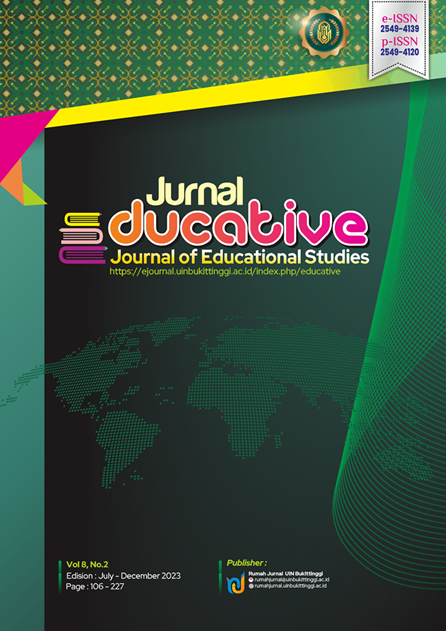



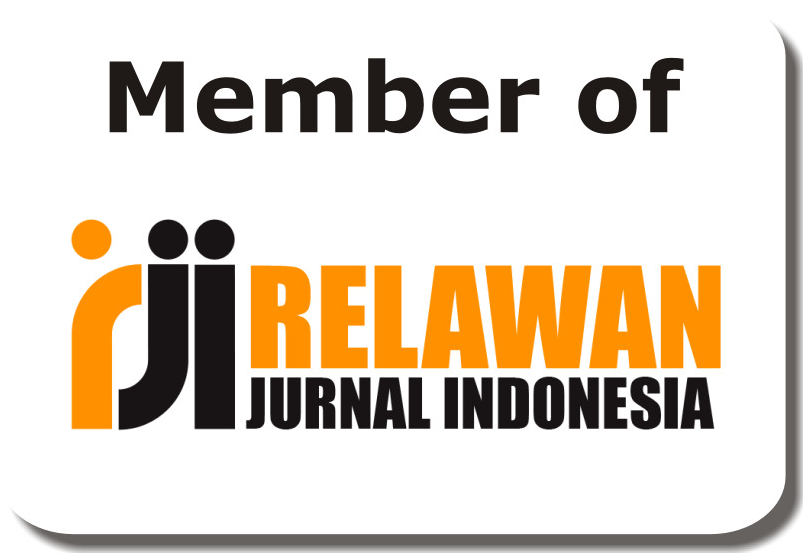


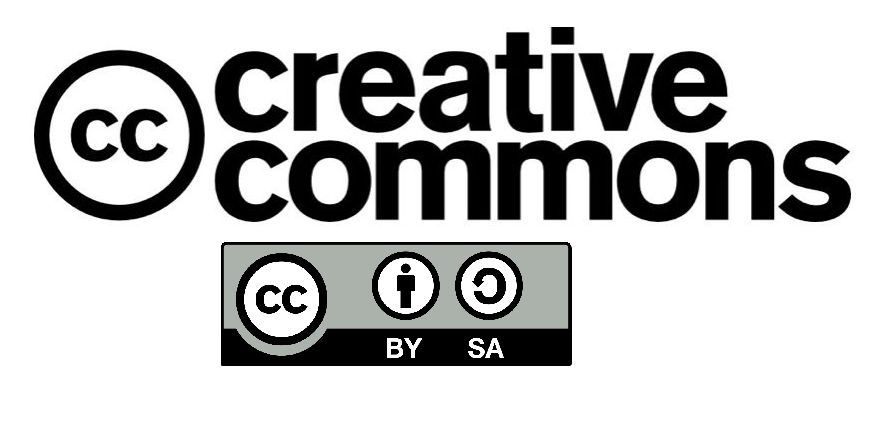









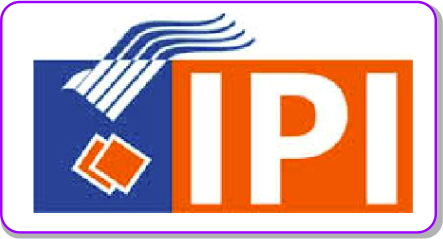 Â
 
